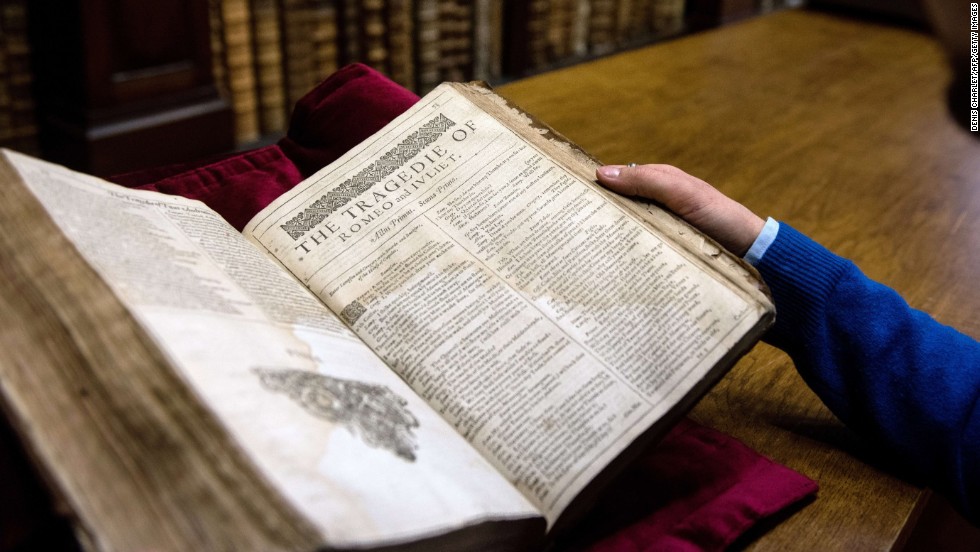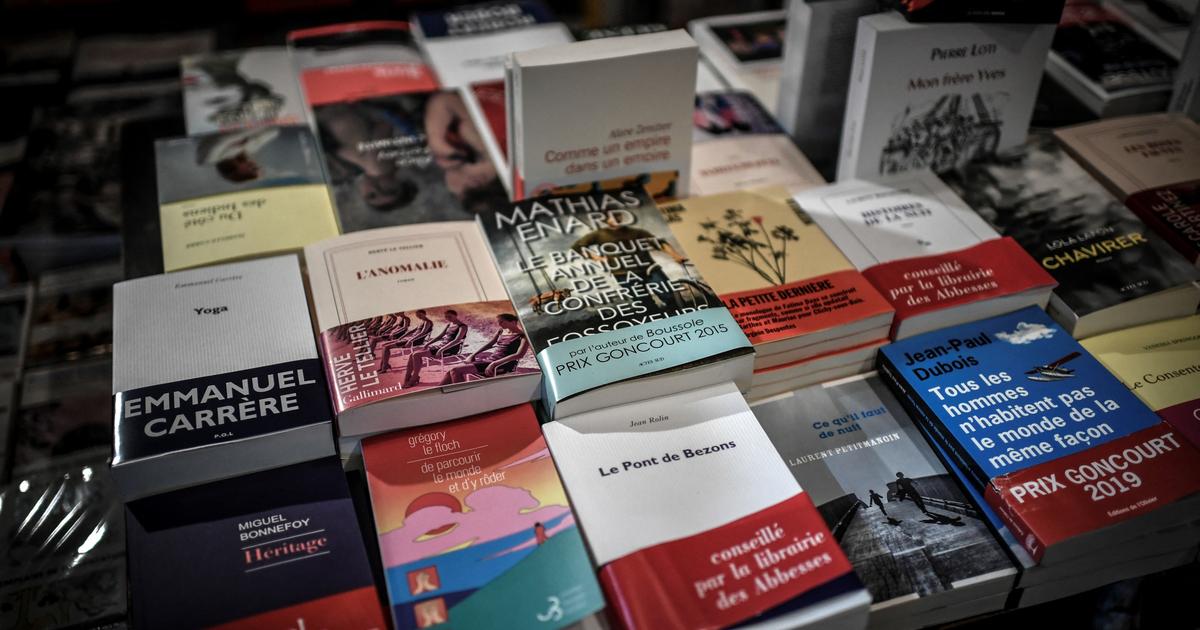- Click to share on Facebook (Opens in a new window)
- Click to share on Twitter (Opens in a new window)
- Click to share on LinkedIn (Opens in a new window)
- Click to email a friend (Opens in a new window)
Editor's Note: Kate Maltby is a UK presenter and columnist on culture and politics, and a theater critic for The Guardian newspaper. He is also completing a doctorate in Renaissance literature. The opinions expressed in this comment are specific to the author. See more opinion pieces on CNN.
(CNN) - The wisdom of Twitter tells us that now is the time to write masterpieces. Confined in our self-isolation barracks, as if the new responsibilities of home schooling, elder care, and 24-hour self-disinfection were not enough, last week a widely shared tweet taught us a lesson: “When Shakespeare was quarantined due to the plague, he wrote 'King Lear.' ”
It is true? Like most viral Tweets, yes and no. As Professor James Shapiro told us in his recent bestseller "1606: William Shakespeare and The Year of Lear," no one can be sure when "King Lear" was written, although it may have been written in the summer of 1606 affected by the plague, because his first witnessed performance occurred the following Christmas.
But Shakespeare's writings were deeply affected by the plague more than 10 years earlier. The most serious plague outbreak in 30 years hit London between 1592 and 1594, throughout the outbreak, as today, London theaters were closed.
During this period, the young Shakespeare wrote significant works: the narrative poems "Venus and Adonis" and "The Rape of Lucrezia", and probably "Romeo and Juliet". All three are riddled with images associated with the modern plague. The plot of "Romeo and Juliet" becomes an outbreak of this plague: upon returning from his failed mission to tell Romeo about Juliet's survival, Fray Juan regrets that:
Going to look for a barefoot brother
One of our order, who will accompany me
Here in this city visiting the sick
And they found him, the city seekers,
Suspecting that we were both in a house
Where infectious plague reigned,
They sealed the doors and wouldn't let us out,
So that my trip to Mantua has stayed there.
As many readers will know, Fray Juan cannot deliver a letter to the exiled Romeo in Mantua; Romeo believes Juliet is dead and takes her own life, and Juliet follows her example when she finds out.
The literature of the pandemic
The history of Romeo and Juliet depends on many twists and turns and accidents. Romeo not only commits suicide due to a lost letter; falls in love with Julieta because it turns out that she is going to the wrong party. ('He takes a new infection in the eye,' says Romeo's friend Benvolio in Act 1, encouraging him to go out into town and find a girl to replace his previous girlfriend, Rosalinda.) Kill Juliet's cousin. , which causes the next fatal cycle of events, due to some poorly chosen words among young men who have been found on the street.
This is typical of literature written in times of an infectious epidemic: the AIDS literature also focuses largely on the role of luck in infection and survival, and on the nature of survivor's guilt. The covid-19 literature will probably be the same. Covid-19 can be obviously fatal to the weak or elderly, but the risk of death of a healthy young man may still depend on an unlikely chance encounter or a severe random incidence. Now, in the developed world of 2020, going to the wrong party can kill people again.
If we take Shakespeare as a model, what can we expect to see from the literature created at the end of 2020? A renewed interest in coincidence and luck.
But before we think further about Shakespeare's literary lessons on the plague, we must ask ourselves whether it is significant to compare the coronavirus quarantine with the modern experience of the plague. Admittedly, we are now experiencing something of what historical quarantines have been like: premodern plagues, as well as the coronavirus, emptied our cities and left people locked in their homes with family quarrels, unable even to gather for funerals. Seeing satellite images of mass graves excavated in Iran, I painfully recalled the 16th century plague pits.
Fight the plague on the page, and what is different from this disease
What is different from this infectious disease from a literary perspective is that it affects us at a time when Western society, Europe in particular, is highly secularized. Shakespeare's contemporaries had a variety of different supernatural explanations for the epidemics that plagued Europe between 1347-1660 and, crucially, why some healthy and healthy people survived while others did not.
Astrology was a possible explanation. A 1575 bestseller called "Paramirum Volume," by the alchemist Paracelsus, stated that stars were one of the five key elements that determined a man's health. The idea became essential to early modern medicine and in Shakespeare's own Sonnet 14, it is compared to the astrologers who predict the plague:
Not from the stars my judgment collapses:
and yet I think I have astronomy
But not to talk about good or bad luck,
Of pests, scarcity or the quality of the season.
Even at this point in the story, it did not go unnoticed that people could contract the plague by contact with someone else, and some medical writers had theories of infectious contagion that do not seem very wrong by current standards. (It is an almost universal feature of the plague literature that writers are amazed at how the crowds of a city, once a place of political excitement and liberating anonymity, become sites of extreme danger, banned and rejected) . Followers of Physician Galen wrote of "miasma" and "corrupt air" that supposedly spread droplets of plague, not unlike the aerosols we are now told to spread covid-19.
But almost everyone accepted that God's misfortune had a role to play, be it a society or an individual who had offended. The root of the word "plague" is usually described as a plague, which means "blows" or "shots." In the seminal work of Western literature, "The Iliad," the Greek archer god Apollo rains a plague on the Greek army in the form of infectious arrows. European Christendom was equally ready to blame epidemics for the blows of its own wrathful God.
Not everyone who lives on covid-19 will spiritually think about a viral pandemic like Shakespeare-era believers did. In some ways, that makes it difficult for our societies to impose a justification for the extreme unpredictability with which covid-19 affects people. When it comes to covid-19 victims who are young and healthy, some hardly experience symptoms; others have been fighting for life.
Another difference between covid-19 and European pests is that it does not appear to leave marks on the body. The bubonic plague is famous for 'buboes', the dark red markings are a bit like bruises, marking the bodies of their victims. Throughout his early works, Shakespeare plays with the image of white and dark red patterns on a human body: In "Venus and Adonis," the two lovers catch their breath of love until their faces turn red and white. and Adonis dies - albeit in a hunting accident - leaving a purple and white flower.
What Shakespeare can, and cannot, teach us about covid-19
Much of the traditional plague literature plays with how these marks on the body become a form of medical language, speaking of the body's experience even when the victim's voice has been silenced by death (a text that can also 'communicate' contagion disease). As Ernest B. Gilman, one of the leading writers on early modern plague in literature, tells us: "If we look for a 'plague discourse', we will find it ... fundamentally in the belief in the culture of the Reformation that plague it is in itself a form of (divine) expression and a form of writing that is inscribed in the natural world, in the political body and in the 'signs; that are read in the bodies of the afflicted. '” The coronavirus does not write this type of text on the pages of our bodies.
What else do we learn by looking at Shakespeare's poems and plays today? First: not everyone has the luxury of writing like Shakespeare. While many of us are juggling the stress of working our daily jobs from home or worrying about how to make ends meet on leave, there is good evidence that Shakespeare spent 1593 and 1594 at Titchfield, the home of his patron. , the Earl of Southampton. (Southampton is one of the most likely suspects of the 'Fair Young' model in Shakespeare's sonnets, and was possibly Shakespeare's lover.) The playwright had left his wife at Stratford on Avon to raise their three children. Pest quarantines are always easier for some than others.
The second lesson is that yes, deeply moving literature can come from a time of quarantine. "Romeo and Juliet" moves audiences to cry around the world every day (or it did, when live performance spaces were still part of our lives). But the surprising thing about Shakespeare's plague literature is that most of his references to the plague experience in London are obscure or heavily encoded. Instead, it emerges in a series of metaphors: references to 'bad air', confinement, astrology (Romeo and Juliet are really 'crossed by the stars') and revealing 'red and white' skin (often a reference to those fatal buboes).
When Romeo feels that he is going mad with love, he feels that he is “tied up more than a madman, locked in prison”; he insists to Julieta that "the stony limits cannot maintain love", while she in turn worries that her lover's initial appearance may be deceptive, like "fel meat ... quite tied up in a beautiful palace". Finally, Juliet is buried alive in a stone mausoleum, "poor living corpse, locked in the grave of a dead man." They must feel like family anxieties to anyone locked up during quarantine; Juliet never sees natural light again after drinking the friar's potion. We know that the plague is present in Verona, where Juliet lives, because Brother Juan is quarantined "here in this city" before leaving for Mantua.
But what really shows us that “Romeo and Juliet” takes place in a plague-molded society is the moment when Romeo sees Tybalt's body in the Capulet mausoleum, not buried in a grave but exposed in his “bloody sheet” . As Vanessa Harding, an expert in early modern death, has pointed out during the plague outbreaks in early modern Europe, the dead began to be buried only in sinuous sheets or shrouds, as the price of the attacked burial had risen rapidly. The plague is not just the reason why Romeo's letter doesn't arrive on time; It is the reason that Juliet and her cousins are no longer being buried in stone graves. https://archives.history.ac.uk/cmh/epiharding.html
Why do we turn to literature to survive
When Shakespeare was writing "Romeo and Juliet," he was writing after surviving deep civic trauma. In 1995, critic Geoffrey Hartman defined "trauma literature" as a genre of literature that unconsciously expresses experiences that are too traumatic and too remote from human expression for conscious expression. Plague literature almost always falls into this category, not least because it deals with social trauma forcibly confined to individual homes, so that normal communication about trauma is closed precisely because of its communicability. To write explicitly about the quarantine experience is to expose your family's household secrets.
We are all superstitious about naming the disease we see as pests: in London, "the big C" already means covid-19 instead of cancer; During much of the AIDS pandemic, people were afraid to say the words "AIDS" or "HIV". Susan Sontag said of cancer and tuberculosis that "the very names of such diseases have magical power." Thus, when Ben Johnson wrote a lament over the death of his 7-year-old son in 1616, he left the disease unnamed. It was, of course, the plague.
Writers take an equally euphemistic approach to literary fiction. Whether in 1592 or 2020, when writers are locked up in their home with plague guardians patrolling the street, they are likely to write about confinement, loneliness and isolation, or about symptoms and smell, but with some Exceptions, they rarely confront the disease stalking their psyches. Those who have explicitly created fictional narratives of epidemics, Albert Camus' “The Plague” is the obvious example, rarely written from personal experience.
The fight for power, on and off the page
Meanwhile, political authorities around the world have used outbreaks of contagious diseases to strengthen their own power or justify existing ideologies. The Romans knew this: in the 1st century AD, the political exploitation of apparently "supernatural" disasters is a central theme of Lucretius' Latin poem, "De Rerum Natura". Recently, in Hungary, authoritarian Viktor Orbán pushed the “emergency coronavirus” legislation through his supine parliament to allow him to rule by decree and imprison journalists for up to five years for spreading “false news” (Orbán has tried to limit freedom journalism in Hungary for years).
The first modern authorities were quite capable of a similar hypocrisy: the city of London, dominated by the Puritans, faced a long battle against the theaters of the city, twice complained to the Privy Council that “acting in the time of the plague is to increase the plague by infection: to act outside the time of the plague is to attract the plague by offending God about such moves ”. If you want to read about the ways quarantine was used to segregate society and impose political control during London's plague crises, the work of academic Margaret Healy is a great place to start.
Perhaps the most famous phrase in "Romeo and Juliet" is the dying curse of Mercutio: killed in the dispute between two families to which he does not belong, he spits: "a plague in both houses." Although often cited as "a plague in both houses," "a '" actually means "on." (Some editions have a '.) In this reading, you are not asking for a plague to hit both houses, but for the Montesco and Capuleto homes to be marked, since the doors of the quarantined homes were plagued, with a visible symbol that warned others from infectious danger.
"Romeo and Juliet" is a story of civil unrest and attempts by civic authorities, such as the Prince of Verona, to control the uncontrollable. During epidemics, our leaders try to banish sources of infection, visibly mark and isolate dangerous homes, or sacrifice some lives to save others. "Romeo and Juliet" ends, of course, with the death of the protagonists. Theorists like Rene Girard and Derrida read this as a necessary sacrifice to restore civic order, as if Romeo and Juliet could function as scapegoats for whatever caused this outbreak of violence.
We should hope that such sacrifices are not necessary in the 2020 pandemic. We must also hope that we can overcome the urge to scapegoat people for the tensions that will follow. Let's not pretend, either, that any quarantine-inspired creative flourishing makes up for this unfolding public tragedy. "Romeo and Juliet" is a masterpiece, but there is no cultural response to today's pandemic that can be worth a single death.
William Shakespeare








/cloudfront-eu-central-1.images.arcpublishing.com/prisa/YNQTDG2JGZEMVFHMYQM3UJ7FU4.jpg)
